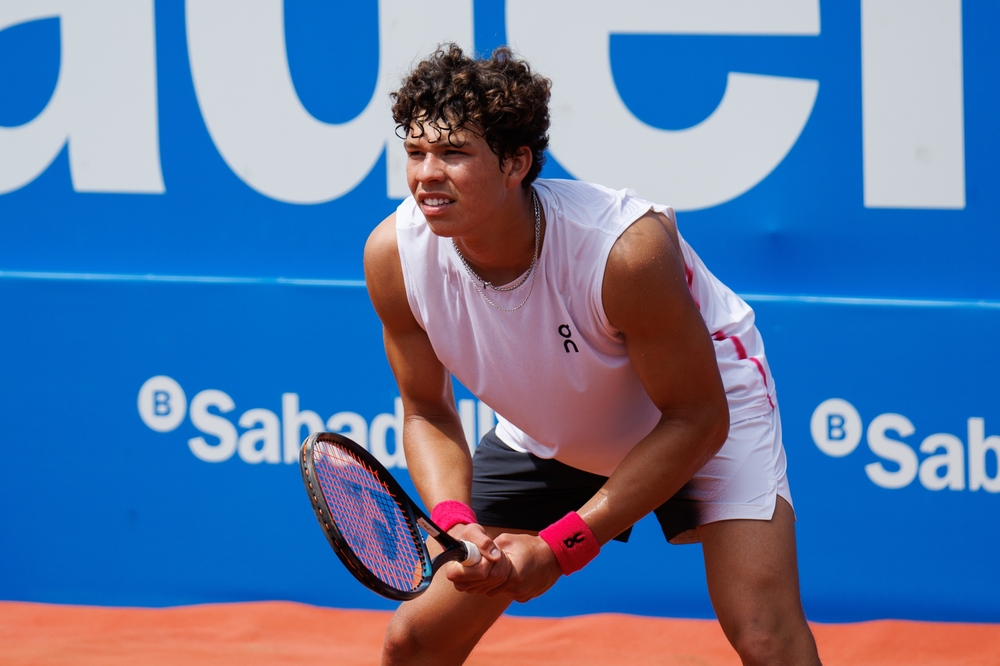American’s gritty Toronto comeback reveals mental toughness that could change everything
Sometimes tennis matches are won with perfect serves and blazing forehands. Other times, they’re won with pure stubbornness and the kind of mental fortitude that refuses to accept defeat even when defeat seems inevitable. Ben Shelton’s 6-4, 4-6, 7-6 (1) victory over Flavio Cobolli in Toronto belonged firmly in the second category.
Down 4-2 in the deciding set against the 13th-seeded Italian, Shelton faced the kind of situation that separates contenders from pretenders. His two biggest weapons – the serve and first-ball forehand that made him dangerous – had abandoned him like fair-weather friends. What remained was raw determination and the growing realization that sometimes winning ugly beats losing pretty.
The heated exchange at the net after match point suggested this wasn’t just another tennis match, but the kind of battle that reveals character under pressure. When two competitors give everything they have for nearly three hours, emotions tend to spill over like coffee from an overfilled cup.
When your weapons fail, find new ones
The fascinating aspect of Shelton’s victory wasn’t what worked, but how he adapted when nothing seemed to work. His serve, typically a dominant force that dictates points from the opening shot, couldn’t find its rhythm. His forehand, usually a finishing weapon that ends rallies with authority, lacked its usual precision and power.
Most players would have crumbled under these circumstances, especially when facing a deficit in the final set. Shelton instead discovered something more valuable than perfect technique – the ability to win when everything goes wrong. That’s the kind of skill that transforms promising players into dangerous opponents.
His 100th tour-level victory came not through dominance but through adaptation, proving that tennis success isn’t always about executing your game plan perfectly. Sometimes it’s about finding ways to win when your game plan gets shredded by an opponent who refuses to cooperate with your strategy.
The psychology of third-set tennis
Third sets in professional tennis become mental warfare disguised as athletic competition. Physical fatigue plays a role, but the real battle happens between the ears where doubt fights confidence for control of a player’s decision-making process.
Shelton’s ability to rally from a 4-2 deficit demonstrates the kind of mental growth that could define his career trajectory. At 22, he’s already shown flashes of brilliance with victories in Tokyo and Houston, but this type of comeback suggests he’s developing the championship mindset that separates good players from great ones.
The tiebreak domination (7-1) after struggling throughout the match reveals another crucial element – the ability to elevate performance when stakes reach their highest point. That’s not technique or conditioning talking; that’s pure competitive instinct taking over when everything else fails.
Cobolli brings out Shelton’s best
Credit belongs to Flavio Cobolli for pushing Shelton to discover reserves he might not have known existed. The 23-year-old Italian, fresh off clay court victories in Hamburg and Bucharest, brought the kind of varied game that exposes weaknesses in opponents who rely too heavily on power.
Their previous encounters had established a pattern – Cobolli finding ways to win three-set matches even after losing the opening set. That history added psychological pressure to an already tense situation, forcing Shelton to confront both his opponent’s tactics and his own previous failures against similar playing styles.
The heated net exchange suggested mutual respect born from genuine competition rather than animosity. When two players empty their tanks for nearly three hours, emotions run high regardless of the final outcome.
Setting up a quarterfinal showdown
Shelton’s reward for his gutsy comeback is a quarterfinal meeting with Alex De Minaur, the Australian who eliminated Frances Tiafoe in another three-set battle. The matchup presents interesting contrasts – Shelton’s power and athleticism against De Minaur’s consistency and court coverage.
Both players reached the quarterfinals through different paths but similar determination. De Minaur’s victory over Tiafoe required its own brand of resilience, suggesting Tuesday’s match could provide another test of mental toughness for both competitors.
The tournament’s hard-court surface favors Shelton’s aggressive style, but De Minaur’s defensive skills and fitness could neutralize power advantages if the American struggles with consistency again.
Growth through adversity
What makes Shelton’s victory particularly significant isn’t just the quarterfinal advancement, but the manner in which he secured it. Learning to win when your best shots aren’t falling teaches lessons that perfect victories never provide.
The experience of overcoming a deficit while playing below his usual standards could prove invaluable in future matches when similar situations arise. Tennis careers are often defined by moments when players discover they’re tougher than they thought, and Sunday night in Toronto might represent exactly that kind of breakthrough for Shelton.
Sometimes the most important victories happen not when everything goes right, but when everything goes wrong and you find a way to win anyway.

